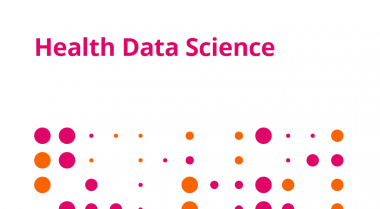
Use of linked primary and secondary care data to identify the prevalence, characteristics and clinical outcomes of severe asthma

Overview
Severe Asthma does not respond effectively to treatments available in Primary Care. New biologic drugs are available from specialist asthma centres for a subgroup of these patients. However, there is significant inequality in access to asthma specialist care across the United Kingdom. Healthcare records from General Practice provide the most representative dataset for patients with asthma. New infrastructure, known as the GP Intelligence Platform (GPIP), is being created in Northern Ireland which will bring together GP records from practices across the country into one database for the first time. We plan to link the GP records of every patient in Northern Ireland with asthma to records from secondary care to create a unique asthma dataset. We plan to use this dataset to understand how common Severe Asthma is, why some patients have worse outcomes, and why some patients have more difficulty accessing specialist asthma care.
The challenge
The majority of asthma care in the United Kingdom is delivered in Primary Care. By definition patients with Severe Asthma (SA) do not respond effectively to treatments available in this setting. Until recently oral corticosteroids were the best available treatment for patients with SA. These medications are associated with a large number of harmful side effects. New biologic drugs are available which target a group of patients with SA whom have raised numbers of cells in their blood called eosinophils. These treatments are associated with reduced need for oral corticosteroid medication and therefore reduced side effects. However, they are only available from specialist asthma centres. Patients with SA have significantly better outcomes when they are referred for specialist assessment and are offered these specialist treatments.
Asthma is more prevalent among those living in the most deprived communities and these same populations have significantly higher rates of emergency department attendance and hospital admission. There is significant inequality in asthma specialist care across the United Kingdom, with unacceptable variation in the numbers of people with asthma, frequency of asthma attacks, access to specialist asthma services and health outcomes across location, age, ethnic group and social class. With new safe and effective management options available for SA it is vital that we better understand why this variation exists and put in place measures to reduce it.
The Solution
Healthcare records from General Practice provide the most representative dataset for patients with an asthma diagnosis. The majority of people in the United Kingdom are registered with a GP, and the majority of asthma care is provided in General Practice.
New infrastructure, known as the GP Intelligence Platform (GPIP), is being created in Northern Ireland which will bring together GP records from practices across the country into one database for the first time.
We plan to link the GP records of every patient in Northern Ireland with asthma to records from secondary care (for example emergency department, hospital admission and laboratory records) to create a unique asthma dataset for the asthma population of an entire country.
The dataset will be anonymised so no individual patients’ personal information will be put at risk of disclosure, and the research will take place within a secure environment under close supervision. Patients from the Severe Asthma service will be involved in the design of the study and dissemination of results.
We plan to use this dataset to understand how common Severe Asthma is, why some patients have worse outcomes, and why some patients have more difficulty accessing specialist asthma care.
Impact and outcomes
Understanding Severe Asthma
Severe Asthma (SA) is difficult to diagnose amongst the wider asthma population and is responsible for a significant proportion of asthma morbidity, with frequent unscheduled presentations to primary and secondary care.
We do not fully understand the disease burden of SA and why the disease deteriorates at varying rates from diagnosis to severe disease between different groups of patients. This project will be one the first of its kind to use individually linked patient healthcare records at a whole population level to attempt to answer these questions.
Healthcare Inequalities
Patients with SA are known to have better outcomes if identified and offered specialist treatment. However, a recent report from Asthma UK identified significant variation in the access to specialist asthma care across the United Kingdom. This study aims to determine the factors associated with this inequality and guide resource allocation locally and nationally to reduce its effects.
Data Linkage
Primary care records provide the most representative dataset for patients with an asthma diagnosis. New infrastructure is being created which will aggregate GP records from practices across Northern Ireland into one database.
Our work has been chosen as the pilot project to demonstrate the potential of Northern Ireland GP data for research. This strategically important work should pave the way for further work using NI primary care data linked to other healthcare and administrative date to investigate other conditions.
Professor Kee, Director for the Centre for Public Health, said “Reducing health inequalities is not only an ethical prerogative but it makes sense to ensure that we build a fairer society where everyone can reach their full health potential. We can only do that if we understand the problem better and this study is well designed to do that”
The team
Frank Kee, Liam Heaney, Abdul Akinoso-Imran, Nigel Hart, John Busby, Jonny Stewart





